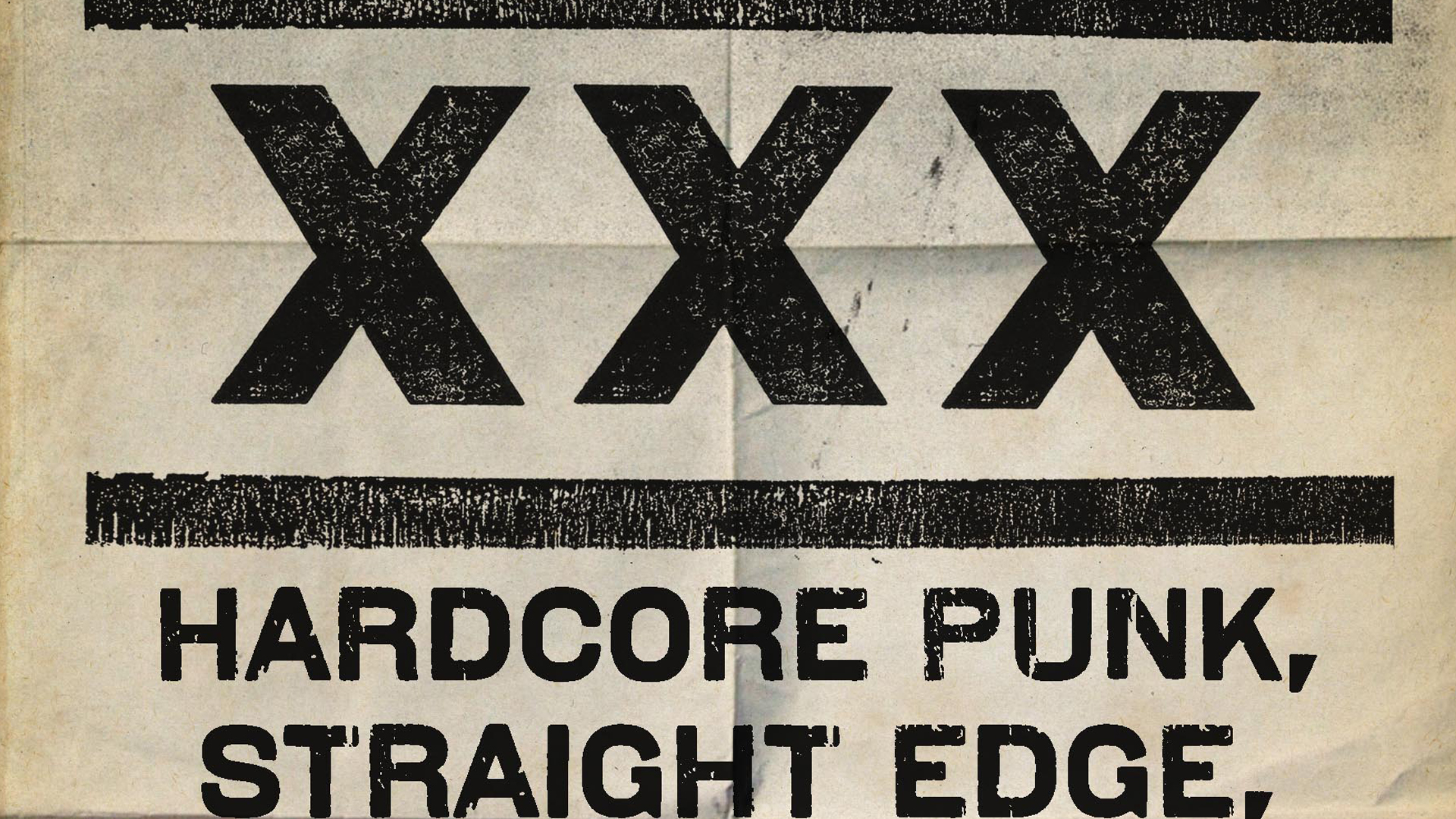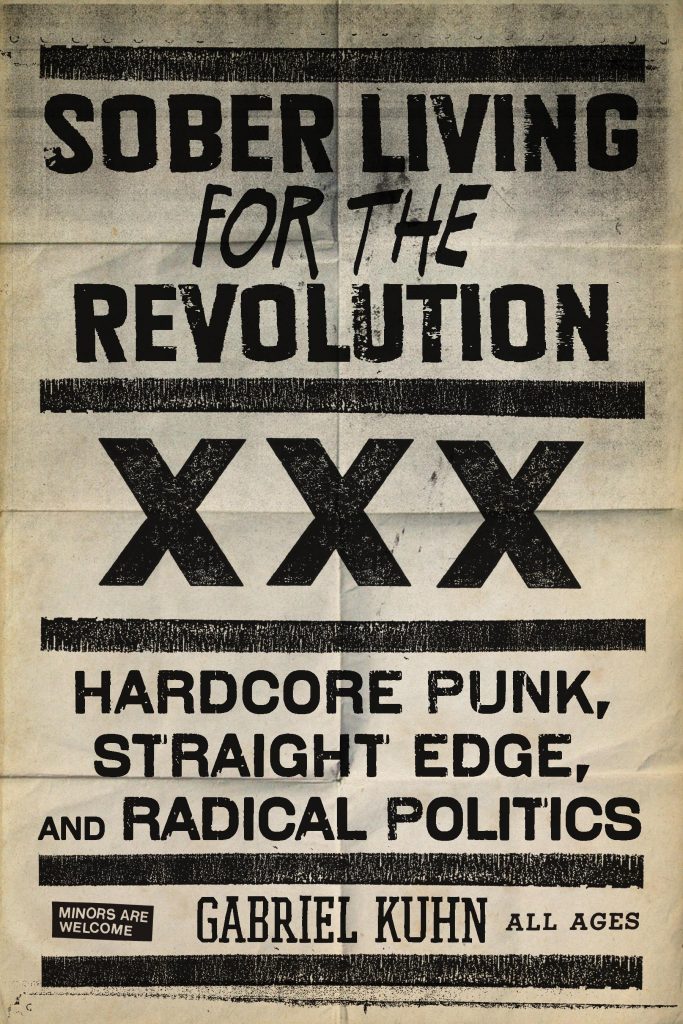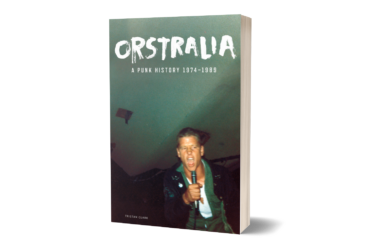By Gabriel Kuhn
July 20th, 2010
Znet
You are the editor of Sober Living for the Revolution: Hardcore Punk, Straight Edge, and Radical Politics. What is it about?
Basically, it’s about tracing the history of relations between straight edge and radical politics – by this I mean progressive, anti-authoritarian, egalitarian politics. Straight edge has often been associated with dogmatism, moralism, self-righteousness, and puritanism. Unfortunately, some self-identified straight edge folks have given reason to this, although the extent to which these attitudes have been characteristic for the straight edge scene has been grossly exaggerated. At the same time, it is true that there have been largely “apolitical” sections in the movement that have shown little resistance to these tendencies, which allowed them to flourish and to attract an unfortunate amount of attention. However, there have also always been individuals, bands, and entire scenes – like in Israel, Portugal, or Sweden – for which the union between straight edge and radical politics seemed very natural; and this is the history I’ve been trying to document in this volume by collecting interviews and essays from different radical straight edge artists and activists.
How did you come to this topic? Are you straight edge yourself?
Yes, I’ve been straight edge for over twenty years. Straight edge has meant a lot to me. I grew up in a small town in western Austria, in an environment where youths, especially boys, were expected to start drinking when they were like thirteen or fourteen. I was the only one in my town who rejected this, except for kids from really conservative Christian homes who I didn’t hang out with either. So there was a sense of isolation and I constantly had to defend my choice of not drinking and, later, of not doing other drugs.
Finding out about straight edge was one of the most exciting discoveries of my life: not only did it mean that there were other kids like me out there – kids into underground music and culture yet with no interest in drugs – but it also meant that there was an entire movement that stood for my choices and ideas; in other words, there was a collective I could identify with!
The problem was that when I finally came in closer contact with straight edge scenes – in 1994, when I moved to the US – I was terribly disappointed, because some of the politics seemed so screwed. You must remember that this was a time when the hardline movement was really strong, and when you still had a very pronounced male dominance in the scene. Out of this came a highly ambiguous relationship with straight edge: it still meant a lot to me and I wanted to be part of it – yet I did not feel connected to many factions of the movement. I think it was this ambiguity that gave me the idea for the book: I wanted to document the parts of straight edge history that I could identify with; the parts that, to me personally, made straight edge the most inspiring and beautiful.
How do you see the evolution of the straight edge movement?
I think that straight edge has developed in many different ways, which is good – although I could do without the conservative elements.
In particular the last ten years have brought real diversity, also on a musical level. Straight edge is no longer tied to the youth crew style of the 1980s or the metalcore of the 1990s – today you have straight edge acoustic acts, straight edge power violence bands and everything in-between. There are also different definitions of straight edge – the most contentious issues are veganism, sexuality, and the exact understanding of drugs/intoxicants – and there are different political adaptations, reaching from anarchist to neo-fascist straight edge groups. As I said, the conservative elements I could do without, but in general diversity is good – it enriches and stimulates.
We think that straight edge is a form of désengagement, of refusal of the hegemonic values. So, it is connected to social commitment, against any oppression, and so to veganism also. How do you see it and how do you think straight edge people see it?
I like the notion of désengagement, I think it describes one of the political dimensions of straight edge very well. As you say, there is a rejection of hegemonic values and norms. So if you are opposed to the political and economic system that produces these values and norms, being straight edge marks an opposition to it. However, the political direction that this takes is not necessarily clear at first. Fascists reject the current system too, so a mere gesture of opposition is not enough to claim straight edge for left or radical politics. I don’t think there is an automatic connection between désengagement and social commitment or the fight against oppression. Something has to be added to allow straight edge to head that way: social and political awareness, a commitment to a just and egalitarian world, empathy and affection. To some, veganism will be an obvious choice to make; others might make other choices with respect to their diets. I don’t think that this in itself is decisive. What’s decisive is that you fight for a better world for all and that you engage in respectful and comradely dialogue with others who want to do the same. No single individual has the answers as to which exact forms of behavior or conduct will get us there – but a common effort will guide us in the right way. And what applies to veganism applies to straight edge too: to some it will be an important part of this journey, to others it won’t. Some people might prioritize other forms of désengagement. After all, complete désengagement is hardly possible in a world dominated by nation states and capital. In the end, it is the solidarity and the mutual support that counts. For us straight edge folks this means to prove our ability to contribute to this struggle in positive and constructive ways.
So this is how I see it. How do other straight edge people see it? I’m not sure. I suppose that some see it similarly, but there are many different understandings of straight edge, including those that reject any connection to politics. As I said before, there is a lot of diversity.
In the last years, some far right movements, especially in Russia and Germany, try to integrate the straight edge culture in their ideological models. In France these last months, some people try to follow this pattern. What can you tell us about this tendency making straight edge a social Darwinism?
Straight edge in its very basic definition has no clear political content – it merely indicates a refusal of drugs/intoxicants. The political connotations of straight edge come from the context it appears in and from the ideas and notions it is linked to. It is easy for the right wing to claim straight edge: all you have to do is turn it into an ideology (rather than understanding it as a personal choice). Then you can claim that you are a “better”, “more advanced”, or “superior” person than others. That’s the first step to fascism. Possibly, the second one is to tie these sentiments to a notion of “health”. While straight edge can certainly contribute to personal health, a political notion of “health” is very dangerous and has been used by all fascist movements – you just have to study their language, fascists always speak of “disease”, “plague”, or “decay” when they refer to the people and communities they see as inferior. The third step – and this is where we come to today’s explicitly fascist and neo-Nazi straight edge adaptations – is when you tie the notion of health to a “race” or a “nation” that you need to “defend” or “preserve” or whatever. Maybe we can speak of a three-step right-wing danger here: 1. self-righteousness (“I am better than you”); 2. social Darwinism (“I am healthier than you and will outlive you”); 3. outright nationalism/racism (“we are better than you and we must maintain our ‘purity'”). I think what we have seen in recent years in Russia and Germany – and now apparently also in France, although I don’t know much about this – is the third step being more and more clearly articulated. The first two, to be honest, have been haunting straight edge for a long time.
How can we resist these developments?
I think there is little point in arguing about what straight edge “really” means or in denouncing the right-wing adaptations as “distortions” of straight edge. Right-wing straight edge folks obviously have their own definitions and there is no higher authority to decide who is right and wrong. In the end, we would just exhaust ourselves by throwing definitions back and forth. I think what’s more important is to make our ideas as present in the scene as possible and to make them compelling to the people who move in the scene. We will win kids by being welcoming, compassionate, and caring. These are strong values – all the other side got is hate.
Yes, but hate is also something very important. We hate oppression and exploitation. And, concerning the three points you talked about, we disagree with the first point. Because, yes, we do consider the vegan straight edge lifestyle as superior to other lifestyles. Would you agree to say that, in your will not to make accurate definitions and in your promotion of spontaneity, you’re in favor of an anarchist vision? And that for you, veganism and straight edge don’t go necessarily together?
Of course it is important to have strong feelings about the terrible consequences of oppression and exploitation. If you want to call that “hate”, that’s fine. But what you hate in this case is a system, and you hate it because you want people – all people, I suppose – to be happy. People on the extreme right, on the other hand, hate people and that is at the center of their ideology. To me that’s a crucial difference, and that’s what I meant.
As far as the superiority of vegan straight edge is concerned, I guess it depends on what you mean by that. If you think that it is the best way to contribute to as little cruelty as possible in your personal lives, I see no particular reason to argue with that – although I’d like to point out that being vegan straight edge in itself doesn’t mean that you can’t be an asshole. As I said before, if you want to set a really convincing example for a “cruelty-free” or a “compassionate” lifestyle, your vegan straight edge ethics have to be tied to broad political consciousness.
Related to this, the claim that vegan straight edge constitutes a superior lifestyle can become troubling if you really want to make this a universal norm. I mean, if we go to a fishing village in Senegal and tell people that their lifestyle is inferior to ours, our vegan straight edge ethics can easily become cynical and offensive. That’s why I don’t like to speak of vegan straight edge as anything “superior”. I think that vegan straight edge as a political practice makes a lot of sense in certain contexts and under certain circumstances – but we must never forget that billions of people don’t share our contexts and circumstances, and hence other things will make more sense to them. Life is diverse, complex, and complicated, and not only is it important to be aware of that, it also makes life exciting. And it is certainly one of the reasons why I don’t like to argue about definitions. Definitions help us to negotiate the complexity of life – they are tools, but they hold no truth. That’s why I think it’s usually pointless to argue about them. You don’t win over people’s hearts by defining things – you win them over by setting examples of a more joyful life. Does this belief make me an anarchist? Maybe – if it fits your definition of anarchism…
Regarding the relation of veganism and straight edge, maybe this helps to illustrate my point about definitions being tools: to me, the two are not necessarily connected, because I define straight edge as abstinence from drugs/intoxicants, and people can abstain from drugs/intoxicants without being vegans. Hence, according to the definition of straight edge I use, there is no necessary connection. If you have a different definition, your conclusion might be a different one too. It can be a lot of fun to discuss these things, but we’ll never get to the point where one of us is proven right or wrong – and I don’t think that matters either.
How do you see the future of the straight edge movement?
To begin with, I am convinced that it will live on. It has survived thirty years, which means that it has stood the test of time. Most straight edge kids today weren’t even born when Ian MacKaye wrote the song “Straight Edge” in 1980. Movements that make it this long are usually here to stay.
What will the future bring? Even more diversity, I suppose – and hopefully more radical expressions. I am optimistic. I think that there exists both an increasing interest in sobriety in radical circles and an ongoing interest for radical ideas among many straight edge kids. This is promising.
What is the best way to buy the book? Can you tell us about the publisher?
The best way to buy the book is to get it either directly from the PM Press website or from an independent bookstore or distributor. That way, the money stays within our community and will go into important political projects.
PM Press was founded a couple of years ago and has brought out an impressive list of books, DVDs, and CDs during the short time it has been around. There are a few people involved who have very strong roots in the hardcore punk community, which certainly helped to gather support for this project. If you want to get a better idea of the titles they are putting out, it’d be best to just browse their website.







